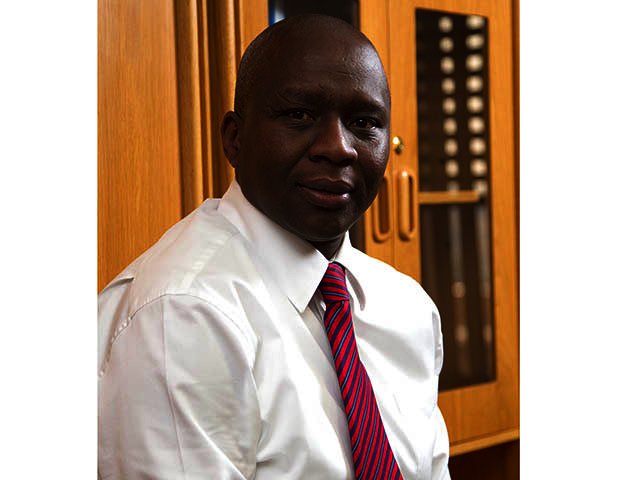South Africa on the way to catching up internationally, says Telkom
By Ryan Noik 5 February 2014 | Categories: news
Finally, South Africa may be on the way to catching up with its broadband counterparts in the US, Europe and Asia. For some time in those regions, the future of entertainment of music and video has been seated in streaming, rather than owning, content. Recently, Manelisa Mavuso, the managing director of consumer services and retail at Telkom South Africa, reiterated that in order for this to similarly be a reality for South African users, uncapped, consistent and reliable internet connectivity was essential.
However, our broadband, which has lagged behind the developed world, has not been the only obstacle to entering the streaming entertainment era. Mavuso pointed out that the ownership mindset is deep-seated, having been the standard until very recently. Nonetheless, this is changing as well. He elaborated that this shift is being driven by the youth and the technically savvy — who pride themselves on being on the cutting edge of technology — as well as by content distributors themselves who are looking for new revenue streams in the face of declining physical media sales and rampant piracy.
“Satellite broadcasters, for example, are beginning to offer on-demand services where content is pushed to decoders and unlocked by consumers for a fee. Similarly, the selection of available content is updated automatically, meaning little to no effort is required from the end user,” he elaborated.
Acclimatisation change
According to Mavuso, although these on-demand services offer limited content, they help to acclimatise consumers to the idea of paying for access to content rather than purchasing a physical copy of the media in question. He noted that, curiously, it’s precisely these sorts of services that will present the greatest challenges to traditional broadcasters in coming years as consumers begin to expect all content to be available at will and affordably.
Indeed, it’s this very same model of access by means of subscription that underpins international music services like Spotify, Rdio and Pandora, and local ones like Simfy Africa, Deezer, Nokia Music +, Spinlet and Rara.
He added that use of these services is making the model of access rather than ownership more appealing and less alarming for local consumers. With technology analysts predicting that an ever-larger quantity of content and affiliated services will move to cloud-based offerings in coming years this is a good thing.
TV or not TV, that is the question
Furthermore, Mavuso pointed out that the uptake of streaming services globally has been enormous, and continues to grow on the video front because of the growing prevalence of internet-capable “smart” televisions, which have proven more popular than 3D-enabled models. However, there is still a ways to go for the full enablement of all streaming media services.
For example, current international licensing restrictions prohibit access to international video-streaming services like Netflix and Hulu from South Africa. However research has shown that demand for such services exists and in that regard various South African companies — including Telkom — have been in talks with international video streaming services, which promisingly suggests they may soon be available locally.
Mavuso continued that in addition to offering consumers greater choice in terms of content; bringing these services to South Africa will serve as a “powerful incentive” for consumers to acquire fixed-line broadband to do so.
Signs of progress
Mavuso pointed out that, with Telkom Internet’s entry-level fixed-line ADSL offerings being upgraded from 1Mbit/s to 2Mbit/s (and 4Mbit/s lines being boosted to 10Mbit/s in supported areas) these sorts of services are now feasible for South African consumers, both in terms of connectivity and cost.
Arguing in favour of fixed lined connections rather than 4G services, Mavuso continued that all streaming services, whether video or audio, require end users to have consistent, high-speed connectivity. “Though many audio services allow users to store content offline — for access, particularly from mobile devices, when connectivity is unavailable — for any streaming service to fully replace a consumer’s physical content library dependable connectivity is a must,” he stressed.
He opined that while 4G services offer the necessary speed and low latency, they remain prohibitively costly, and pointed out that the primary problem with 4G offerings for streaming was their associated data limits. More specifically, to make streaming viable, he elaborated that users required either enormous data caps or uncapped offerings.
U(ncapped) and I(investment)
However, there are a number of reasons to invest in an uncapped connection beyond the entertainment options it facilitates.
He pointed out that fixed-line, unlimited connectivity is also far more inclusive and adaptable than mobile solutions. Fixed services tend to include Wi-Fi devices, which makes adding new devices or sharing the connection with other users easy. Dependable, high-speed, uncapped connectivity also fundamentally alters user behaviour. Higher speeds mean users can conduct all of their online activities more quickly, and not being beholden to data limits means they needn’t consider the data implications of each activity. In short, uncapped services encourage users to explore and experiment online.
“This exploration and experimentation is what turns young tinkerers into entrepreneurs. It allows companies and individuals to interact with and participate in the global, digital economy. And, it allows South African’s to remain abreast of their counterparts internationally — the value of which is not to be underestimated, particularly in light of the frenetic rate at which the information and technology sectors are evolving,” he concluded.
Most Read Articles

Have Your Say
What new tech or developments are you most anticipating this year?



